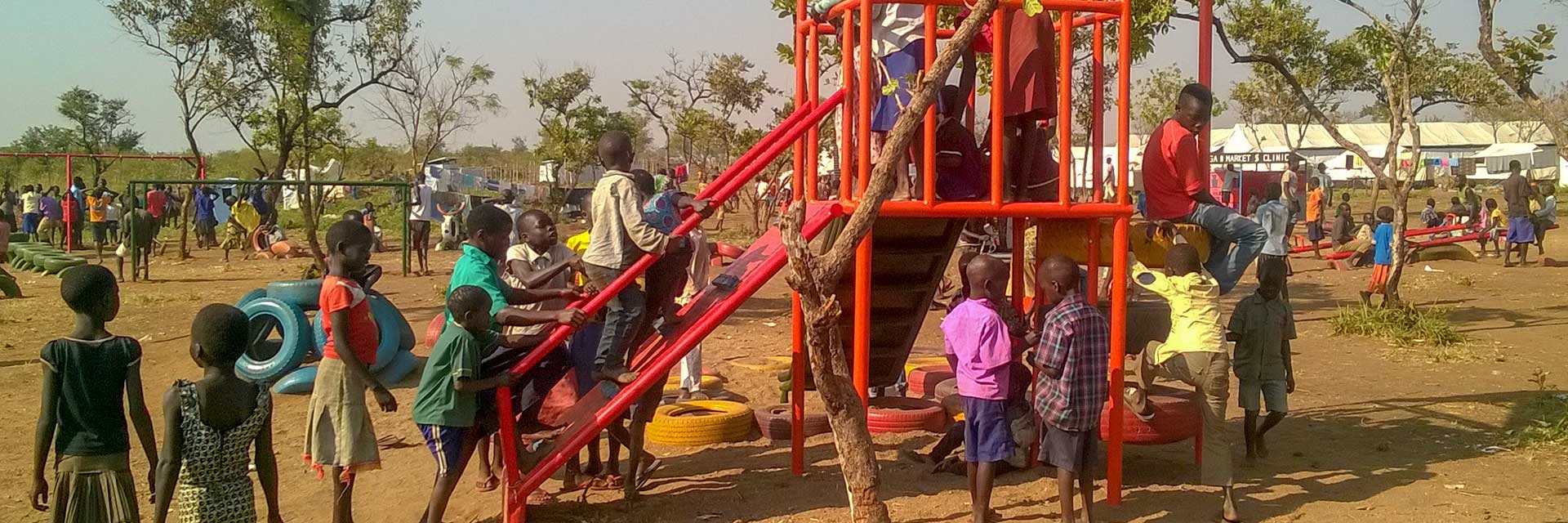
Children playing at a Plan International – supported Child Friendly Space in the Bidibidi refugee settlement in Uganda. Photo: Plan International
Young but no longer alone
South Sudanese youth finds Canadian support in Uganda refugee camp
Subea Raja* is a 16-year-old girl living in Bidibidi refugee settlement in northern Uganda. Subea was separated from her parents in 2013 due to the war in South Sudan. She has not been able to find them yet, and does not know if they’re alive or not. Subea now lives with a foster parent, Kenam Maria, a single mother with five children under her care. Subea’s sister lives in Rhino camp, another refugee settlement about 2 hours away.
More than 270,000 South Sudanese refugees have sought safety in Bidibidi, a shocking number given that the settlement only opened on August 3, 2016. The South Sudan refugee crisis, which has forced more than 1.1 million people to flee the country and has displaced another 1.8 million within the country, is one of the most severe, large-scale humanitarian crises in the world.
More people continue to arrive, sometimes up to 2,000 a day, putting a strain on local resources addressing their protection, education and water and sanitation needs. Thanks to funding from the Canadian Humanitarian Assistance Fund, Plan International has been providing essential hygiene items, clean drinking water, latrines and safe and protective environments to girls, boys and families.
Subea first heard about Plan International from friends. She participated in activities at Plan’s Child Friendly Space and met facilitators who registered her and provided her with psychological support to help her to acclimatize to her new surroundings.
Subea was also one of 3,000 adolescent girls and women of reproductive age who benefited from the distribution of dignity kits containing disposable sanitary pads, soap, underwear, a pair of scissors, and nail cutters.
“Before coming in contact with Plan International, I used to feel shame and think a lot about my problems that took a lot of my time. I felt lonely and isolated from people until I made friends through the Child Friendly Space and with the help and support from facilitators. I realized positive improvement in my life through continuous interactions with friends that made me find life still meaningful”